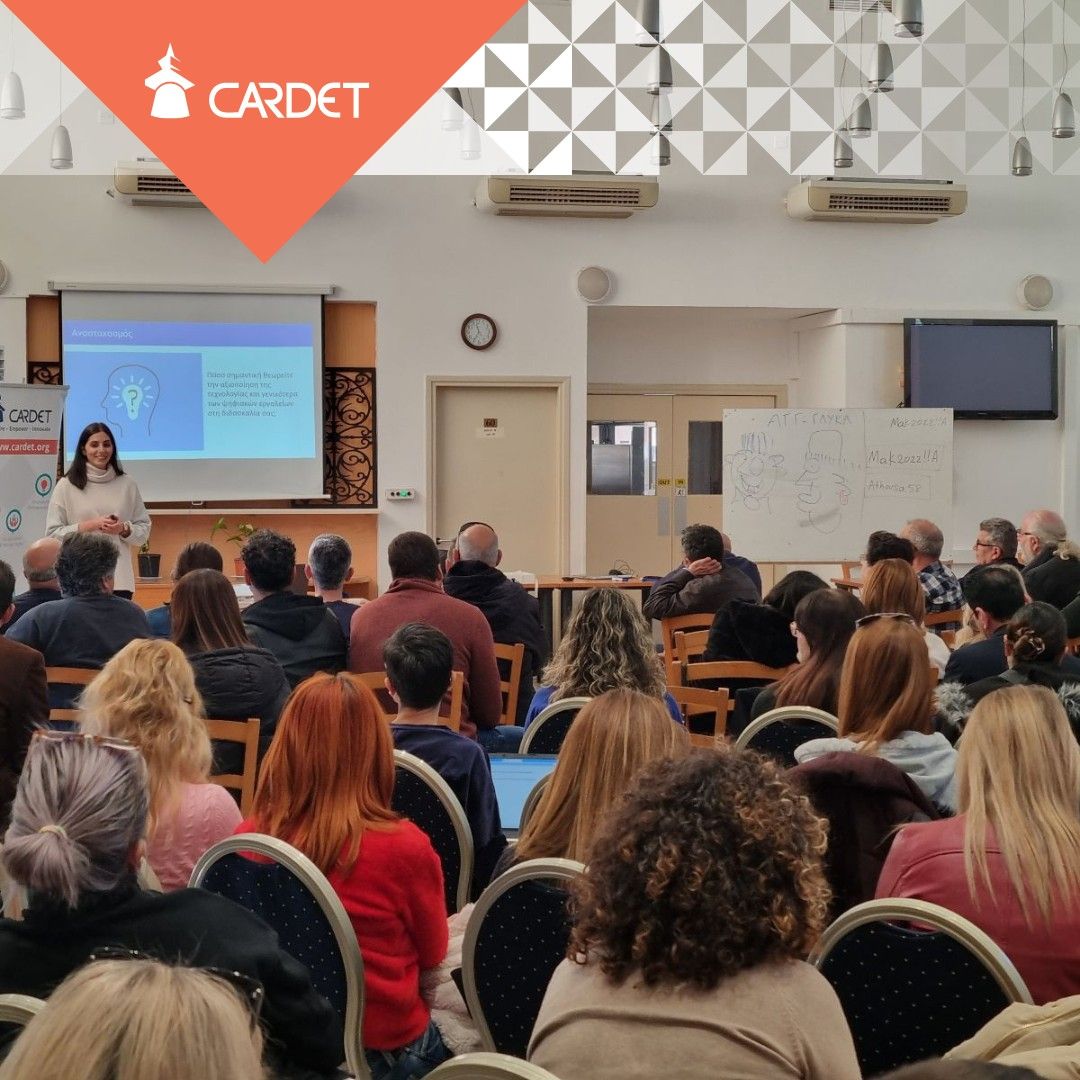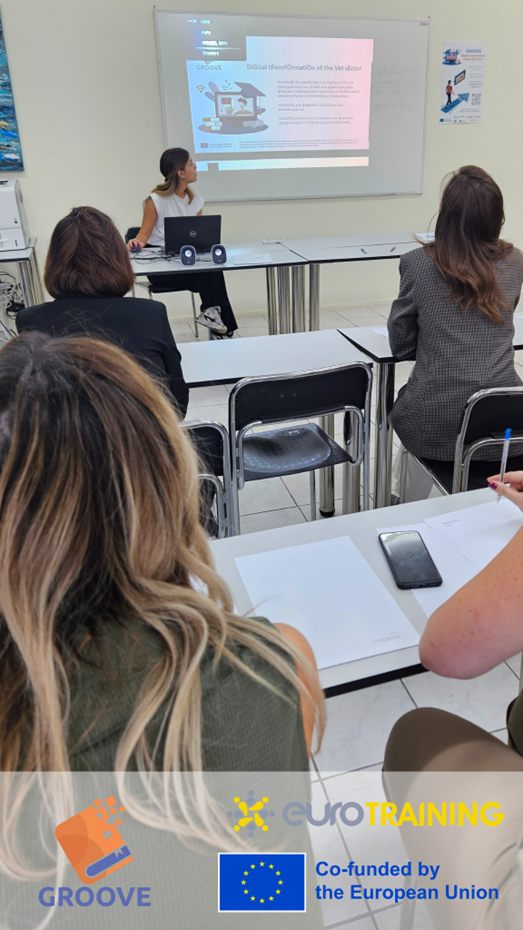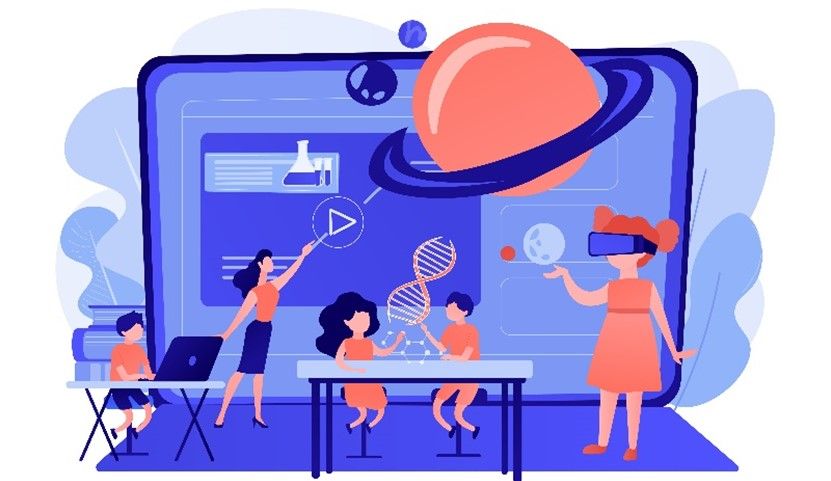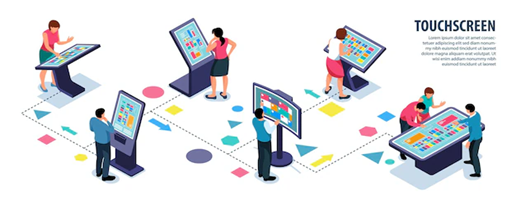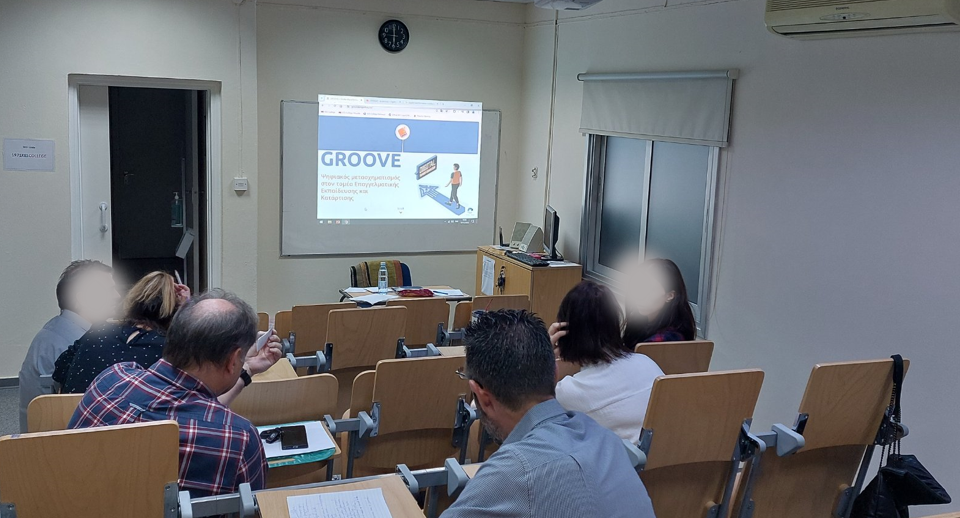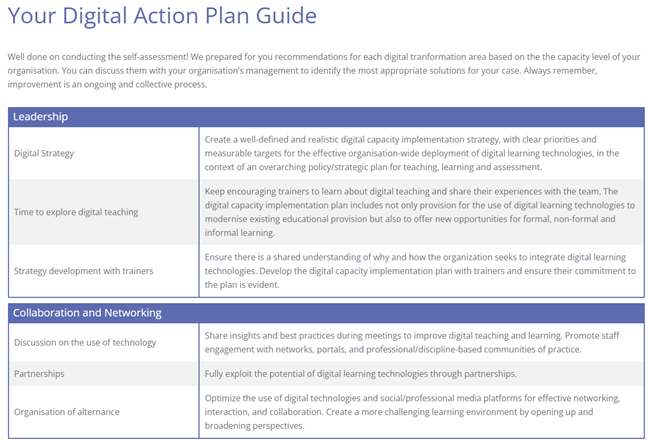The implementation of the Digital Transformation Training Programme for VET in Cyprus was implemented in three phases. First, CARDET and INNOVADE collaborated to deliver an face-to-face introductory session to participants on the 17th of November 2023 in Nicosia. This session included presentations, activities, and discussions with the aim of highlighting the importance of digital transformation in all aspects of the VET sector. Specifically, participants were guided to reflect on the digital competences within a spectrum activity related to the digital aptitude of their organization and trainers. In addition, this first session framed the concept of digital transformation marking, but not limited to, its main dimensions according to the GROOVE pre-work and analysis: (a) Digital literacy and tech skills, (b) Innovation & absorption, (c) Learning modalities, (d) Growth culture. For this discussion, the DigCompOrg, frameworks from the organizational management (e.g., SWOT), and theories of the management of change, were particularly utilized to guide the conversations. In the second part, the focus turned into the practical digital competences of trainers related to teaching and students’ assessment. Finally, participants were guided to create an account and navigate into the GROOVE eLearning platform, through which they attended the online training package. This self-autonomous learning consisted of the longest and most important part of the training. The online course includes detailed content for digitalizing VET organizations into three modules:
Module 1: Developing the organisation’s Digital Strategy focuses on the strategies you can follow to develop a digital action plan for your VET organisation. This includes conducting an initial research such as SWOT and target group analysis, drafting the organisation’s vision, setting the strategic objectives, and selecting strategies to monitor the action plan implementation.
Module 2: Enhancing the Digital Capacity of VET Trainers presents practices on how to promote VET trainers’ organisational communication, professional collaboration, reflective practice and continuous professional development, based on the European Commission’s DigCompEdu.
Module 3: Empowering Learners’ Digital Competence presents practices on how to promote VET learners’ digital competences, as defined by DigComp 2.2. In addition, the module outlines examples of assessing learning outcomes using technology and adopting EU key directives for recognition of learning outcomes.
This online course is publicly available for users to attend upon registration to the eLearning Platform. A specific feature of the online self-directed learning was the implementation of the self-assessment through the Intelligent Tutor. In brief, the intelligent tutor provides step-by-step instructions for preparing a digital action plan based on a self-assessment of the respondent organisation’s digital capacity. At the end of the assessment, users are provided with comprehensive recommendations for digital transformation which they can plan with the organisation’s management. Based on this pre-work, participants were invited for a second training session with the project partners.
Specifically, upon the self-directed practice, participants gathered into a hybrid event to present their Digital Action Plans to their colleagues. This activity proved very useful to collect feedback and exchange ideas with other organizations. This session was marked by the provision of the micro-credential to participants upon the full completion of the training. Overall, the training package was an intensive learning experience with positive implications to both the partner and participating organizations.


